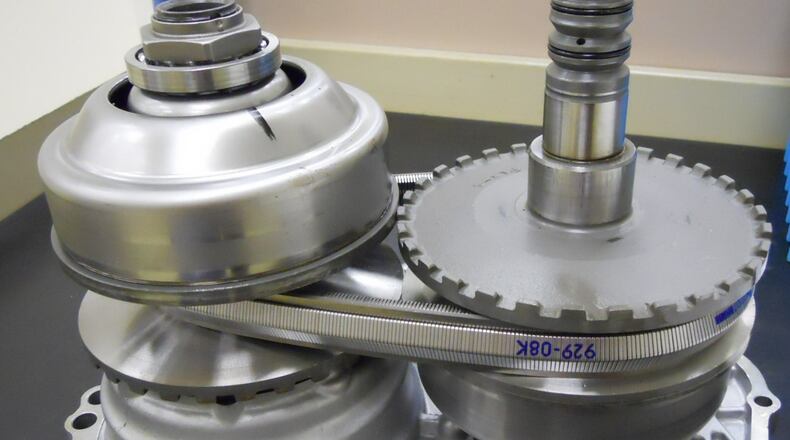Halderman: Thanks for writing with a good question. Without a doubt, a CVT transmission offers better fuel economy than a conventional automatic transmission; this is one of the reasons it is being used by more vehicle manufacturers. It has some advantages and disadvantages, just as any transmission design.
Advantages:
1. Very smooth without any jerking because it doesn’t actually shift gears like a conventional automatic transmission does
2. Allows the vehicle to achieve fuel economy close to that of a manual transmission.
Disadvantages:
1. Earlier CVT transmissions tended be noisy and had unknown long-term durability, but that has changed over the past few years; they are now as durable as other type of automatic transmission.
2. Many minor repairs and some wear items such as solenoids and valves are commonly serviced by most shops. If the main chain and pulleys wear or are damaged, however, this usually requires replacement of the entire unit similar to a conventional automictic transmission if there is serious damage to the internal components
What do I think about a CVT? I do like the smoothness. I do not like the occasional high engine speed when accelerating rapidly or when climbing a long hill. I prefer a conventional automatic transmission, especially if it is a six- or more speed automatic.
About the Author
